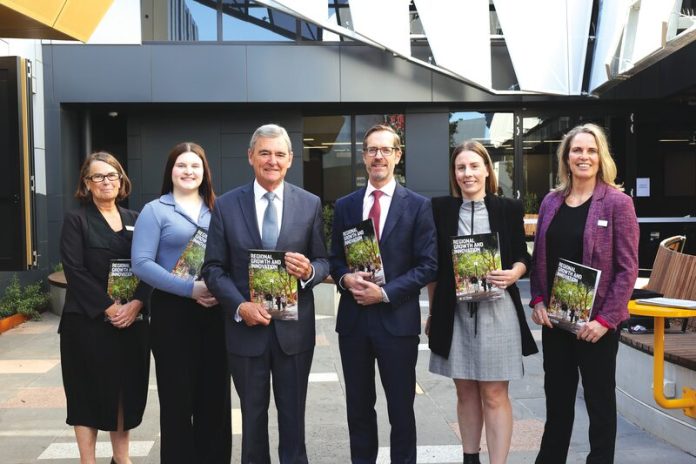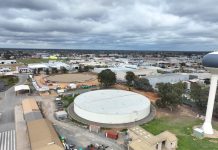
By Deanne Jeffers
REAFFIRMING its commitment to driving social and economic impact, particularly in regional areas, this week La Trobe University announced its ‘Regional Growth and Innovation Strategy 2030’.
The ambitious five-year plan outlines transformative goals to increase university participation in regional Victoria, strengthen ties with industry, and invest in innovation across its campuses in Bendigo, Shepparton, Albury-Wodonga, and Mildura.
At the centre of the strategy is a pledge to expand regional student enrolments—on campus, hybrid, and online—at four times the domestic average, reaching 6,700 full-time equivalent student enrolments by 2030. This would represent a 60 per cent increase from 2024 levels and help narrow the higher education participation gap between metropolitan and regional communities by a third.
“Fewer than 20 per cent of regional, rural and remote Australians attend university, yet the Australian Universities Accord has set a national higher education participation target of 55 per cent by 2050,” said La Trobe Chancellor, the Hon. John Brumby AO.
“The bold targets outlined in La Trobe’s new Regional Growth Strategy 2030 will contribute to reducing the gap between metropolitan and regional higher education participation and boosting the skilled workforce in areas of greatest need.”

With more than 650,000 people living in the regions served by La Trobe, the strategy aims to generate long-term social and economic benefits, particularly in the critical sectors of health, agriculture, and education.
Vice-Chancellor Professor Theo Farrell said the university’s role as a regional leader in research and innovation is key to the strategy’s success.
“By driving innovation and jobs growth through research and industry partnerships in areas like health and agriculture, of which La Trobe is already a research leader, our ambition is to create vibrant and inclusive communities that will flourish economically, culturally and socially well into the future,” he said.
Key highlights of the strategy include:
• Growth in online enrolments, which have already risen 130 per cent since 2019
• 1,000 new scholarships for regional students
• Development of more short courses and micro-credentials in consultation with employers
• Doubling of regional co-located industry partners from eight to 16
• Support for regional start-ups and innovation ecosystems
• Community access to campus facilities, with 10 community organisations co-located by 2030
• Engagement of at least 150 alumni in student mentorship programs.
Elizabeth Capp, Acting Pro Vice-Chancellor (Regional), said La Trobe is well placed to lead place-based innovation and economic development.
“La Trobe has accelerated regional innovation with more than $73 million being invested in new, state-of-the-art health and teaching facilities across the four regional campuses,” she said.
“Our strong partnerships with organisations such as Deloitte, Agriculture Victoria and the Bendigo Tech School have allowed us to respond directly to local industry needs, while giving partners access to La Trobe’s research strengths through flexible modes of co-location.”
“In doing so, we’re creating stronger local ecosystems where innovation, employment and entrepreneurship thrive.”





